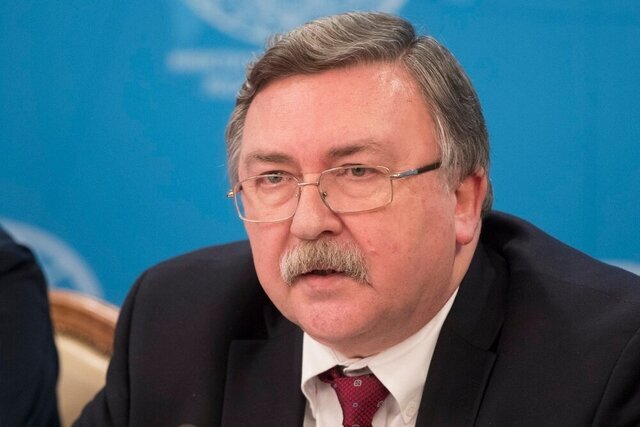Russia calls for expand INSTEX beyond EU borders

TEHRAN - Mikhail Ulyanov, Russia’s permanent representative to the Vienna-based international organizations, has called for expand INSTEX to include countries beyond the borders of the European Union.
Ulyanov said in a tweet on Tuesday this action is in line with common benefit.
“If it happens, then the prospects of return of #Iran to full compliance with #JCPOA will be much brighter,” the Russian diplomat also said.
INSTEX (the Instrument in Support of Trade Exchanges) has been designed by the European Union to facilitate legitimate trade with Tehran. It was introduced on January 31, 2019, by France, Germany, and Britain, the three European countries party to the nuclear deal.
INSTEX was supposed to be a financial channel and a special mechanism for transferring money in spite of U.S. sanctions on Iran. Its objective was to facilitate Iran’s transactions with European companies.
Iran’s Foreign Ministry spokesman Abbas Mousavi said on Monday that operationalization of the INSTEX is welcomed by Iran, however, it does not meet the country’s expectations.
“We take the operation of INSTEX as a good omen, but this is much less than what we expect,” he said in a video press conference.
In late November 2019, Belgium, Denmark, Finland, the Netherlands, Norway, and Sweden issued a joint statement announcing becoming shareholders of INSTEX.
“In light of the continuous European support for the agreement and the ongoing efforts to implement the economic part of it and to facilitate legitimate trade between Europe and Iran, we are now in the process of becoming shareholders of the Instrument in Support of Trade Exchanges (INSTEX) subject to completion of national procedures. INSTEX was established by France, Germany and the United Kingdom in January 2019,” read the statement, published by the Foreign Ministry of Finland.
Iran has likened INSTEX to a beautiful car that lacks gasoline.
In a telephone conversation with his French counterpart Emmanuel Macron on Monday evening, President Hassan Rouhani said described as “positive but insufficient” the first steps that the three European parties to the nuclear treaty have taken to bring INSTEX into operation.
“This path should not be confined to the medical commodities and foodstuff alone, and we must be able to use it to supply all of our country’s demands,” Rouhani underlined.
On May 8, 2019, exactly one year after President Trump abrogated the JCPOA, Iran said its “strategic patience” is over and started to gradually reduce its commitment to the JCPOA at bi-monthly interval. Finally, on January 5 Iran took the last and final step in reducing its commitments to the JCPOA.
However, Iran has insisted that it will reverse its decisions if the EU abides by its obligations under the multilateral pact.
NA/PA
